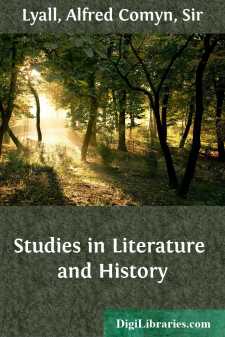Categories
- Antiques & Collectibles 13
- Architecture 36
- Art 48
- Bibles 22
- Biography & Autobiography 813
- Body, Mind & Spirit 142
- Business & Economics 28
- Children's Books 15
- Children's Fiction 12
- Computers 4
- Cooking 94
- Crafts & Hobbies 4
- Drama 346
- Education 46
- Family & Relationships 57
- Fiction 11828
- Games 19
- Gardening 17
- Health & Fitness 34
- History 1377
- House & Home 1
- Humor 147
- Juvenile Fiction 1873
- Juvenile Nonfiction 202
- Language Arts & Disciplines 88
- Law 16
- Literary Collections 686
- Literary Criticism 179
- Mathematics 13
- Medical 41
- Music 40
- Nature 179
- Non-Classifiable 1768
- Performing Arts 7
- Periodicals 1453
- Philosophy 64
- Photography 2
- Poetry 896
- Political Science 203
- Psychology 42
- Reference 154
- Religion 513
- Science 126
- Self-Help 84
- Social Science 81
- Sports & Recreation 34
- Study Aids 3
- Technology & Engineering 59
- Transportation 23
- Travel 463
- True Crime 29
Studies in Literature and History
Description:
Excerpt
PREFACE
In the Second Series of his Asiatic Studies the late Sir Alfred Lyall republished a number of articles that he had contributed to various Reviews up to the year 1894. After that date he wrote frequently, especially for the Edinburgh Review, and he left amongst his papers a note naming a number of articles from which he considered that a selection might be made for publication.
The present volume contains, with two exceptions, the articles so mentioned, together with one that was not included by the author.
A large number of Sir Alfred Lyall's contributions to the Reviews deal, as might be expected, with India—with its political and administrative problems, or with the careers of its statesmen and soldiers. He appears, however, to have regarded such articles as not of sufficient permanent value for republication, and his selection was confined almost exclusively to writings on literary, historical or religious subjects. He made an exception in favour of an essay on his old friend Sir Henry Maine; but as the limitations imposed by the publisher made it necessary to sacrifice one of the larger articles, this essay was, with some reluctance, excluded. It dealt chiefly with Maine's influence on Indian administration and legislation; and would more appropriately be included in a collection of his writings on India, should these ever be published.
While Indian official subjects have been excluded, readers of the earlier 'Studies' will recognise that many of the writings in this volume follow out lines of thought suggested in the earlier works, or apply in a larger sphere the results of observations made when the author was studying Indian myths and Indian religions in Berar, or the 'rare and antique stratification of society' in Rajputana. The two addresses on religion placed at the end of the volume form the most obvious example, but there is a close connection between a group of the other articles and the views developed in Asiatic Studies.
In the last edition of that work a chapter on 'History and Fable' was inserted because of its bearing on the author's general views 'regarding the elementary commixture of fable and fact in ages that may be called prehistoric.' In this chapter the author made a rapid survey of the 'kinship between history and fable,' tracing it through the times of myth and romance to the period of the historic novel. 'At their birth,' he says, 'history and fable were twin sisters;' and again, 'There is always a certain quantity of fable in history, and there is always an element of history in one particular sort of fable.' The reviews of English and Anglo-Indian fiction, and of 'Heroic Poetry' in the present work, give opportunities of further illustrations from fiction of his views: which reappear from another standpoint in the 'Remarks on the Reading of History'—a short address, which it has been thought worth while to reprint, though it was not specially indicated by the author for publication.
Several of the other articles contain criticism of a more purely literary character; the article on 'Frontiers,' which recounts exciting but little-known episodes in the Russian advance in Asia, has an important bearing on a branch of Indian policy in which Sir Alfred Lyall to the end of his career took a deep interest, and of which he had a profound knowledge; and 'L'Empire Libéral' may, it is thought, be found to contain much that is of special interest at the present time.
These articles have not had the benefit of any general revision by their author, but in a few cases he had indicated in the printed copies alterations or additions that he desired to be made.
...

